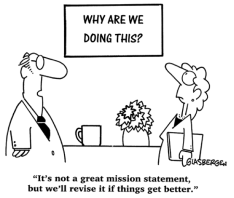We’re now celebrating our two year anniversary from when the company vision, inspiration and determination was first conceived for Rize! To celebrate, our CEO spent the day setting up the ‘level up’ functionality for our next, big update release for Rize (10th August).

As we provide Rize to more organisations to support mental well-being we’ve begun to heavily focus on saying to ourselves at every turn “Yeh? Prove it.”
When setting up accounts for new companies the employer/HR Director tends to already deeply understand their pain points:
– Stress-related absenteeism
– Staff turnover due to difficult working conditions
– Reduced productivity
– Unsure of how to provide support for emotional problems in the workplace, aside from supporting them themselves
As a result it’s not hard to convince them that having a digital solution in place to support their staff is a good idea. But what is most important is proving to them that Rize can do this for them effectively.
How does Rize help to support their peoples’ emotional and mental well-being, and why would organisations put their hands in their pockets to utilise this new HR technology?
Rize integrates a range of evidence-based therapeutic concepts into interactive exercises and tutorials. The concepts we integrate are backed up by a wealth of research indicating that regular use is able to reduce symptoms of stress, anxiety and depression.
So right now we let employers put 2 + 2 together essentially. We provide evidence-based concepts in an innovative way that allows them to be used in the context of the workplace. The employer is given a dashboard where they can see overall usage of the app.
Exercises proven to reduce stress + engagement with the tool = improve well-being
This is essentially the format that telephone counselling services for the workplace and others provide. Although this is a great starting point, and enough for an employer to feel comfortable, we at Rize want the decision maker to feel unbreakingly confident that Rize is without a doubt the tool that is going to help them and their staff move into a better, self-empowered working environment. We wan’t to provide the clearest evidence for each employer so that they ‘get’ exactly why integrating Rize into their workforce can have such a powerful impact.
With that in mind over the last three months we’ve been connecting with a range of world-class leaders and institutions in mental health who we can collaborate with to provide solid evidence that Rize does what it says on the tin.
We will be collaborating with the Cambridge Universty Centre for Neuropsychiatric Research. They will be launching a new blood spot test to measure levels of markers in the blood that indicate levels of mental well-being and depression. With their trials we will be providing their users with the Rize app inbetween the blood spot tests over a number of months, so that the user can access our ‘digital intervention’ alongside. In this way we will be able to measure if Rize is having a significantly positive effect on the individual over time in relation to their blood spot tests. If you would like to take part in this as an individual you can sign up here.
We’ve also in discussion with the Centre for Assistive Technology and Connected Healthcare (CATCH) about working together and providing more of a formal evidence base for Rize.
What seems most important to employers right now is that they can provide a tool that they can see their employees are engaging with and the effectiveness of the tool is without doubt, all the while ensuring anonymity for each user of the app .
That’s why each step of the way we are working tirelessly to make sure that we provide both an engaging and effective service, with feedback to the employer every step of the way that it works so they can rest easy knowing we’ve got them covered.
Interested in signing up for a free trial for your organisation? Get in touch now for a no-hassle consultation.






